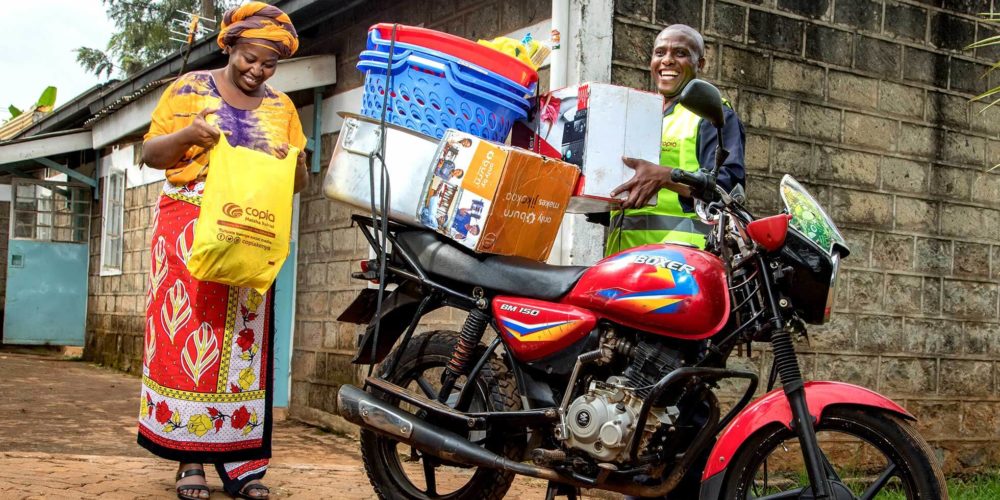The era of customer primacy is finally loading

What if you could get your weekly groceries—or a few impulse buys— all delivered to you in ten minutes? Not an hour; ten minutes.
Founded six years ago and accelerated by the global pandemic, Getir is leading a posse of ultrafast delivery providers. It started operations in Turkey and is now valued at close to USD8 billion. It spread its operations across Europe throughout this year, and has just made its US debut.
The company serves densely populated cities by setting up a network of fulfilment centres. These are “dark” stores (customers can’t walk in) that stock a limited range of the most popular grocery items. Getir employs its own riders, pickers and drivers, and pays them a living wage.
Ten minutes, though? It probably takes longer to deliver stuff from one room to another in some of our homes! The extreme time window is deliberate—it catches the attention. Many customers probably try it out to see if it can be done—and then stay when it is. The trick, do note, is multifaceted: app-only ordering, which only works if a store is near you; well-paid employees, not gig workers; and a limited range of fast-moving products. No frills—but ten minutes.
Let’s fly back to our own shores now. Copia is a mobile commerce enterprise also aiming to do a very specific job in the lives of its customers—the need to serve forgotten rural shoppers. Copia is sending a range of stuff—from household and personal care items to farming and construction supplies—to rural destinations.
Ordering might originate via mobile phone when a Nairobian buys goods to send to rural homes or relatives; or it might come from the village, from the final customer. Delivery originates in a vast fulfilment centre in Nairobi and is done by aggregating orders to send to a particular region. Copia cleverly avoids the last-mile problem—it does not deliver to the end-customer’s home, but to a network of agents. These agents are already in the villages, and trusted—tailors, hairdressers, general traders. They provide the final collection point.
These agents receive a commission per sale, which is possible because so many traditional middlemen—distributors, wholesalers and retailers—have been cut out. It works. There are now 30,000 such third-party agents. They don’t have to invest any new working capital; they just have to make space in their existing premises to receive deliveries, and recruit customers.
Getir targets busy-busy urban customers in the West; Copia, under-served rural ones in Africa. They use tech to deliver analogue. Both are heralding a dramatic shift in strategy and logistics, occasioned by mobile technology. Did you spot the common elements in how these new-age businesses work?
First, they spot inconveniences in their customers’ lives, and start there. They do not operate to suit themselves and then talk about fake “customer-centricity”—they live and exemplify it. Their customers become their biggest cheerleaders, not their annoyed and frustrated victims.
Next, they remove frictions. Middlemen, logistical logjams, fragmented supply—all gone. Getting your stuff in ten minutes is a big deal in Chicago; but so is getting it in two days in Siaya. A combination of heavy tech investment and logistical savvy smoothes the way. Highly engaged employees work with sharp algorithms to deliver the speed.
Third, while much media attention is focused on the global tech giants who try to compete across a bewildering array of products and customers, these smaller, newer players are more focused in their strategies. They pick their segments carefully, and then over-deliver there. They don’t (yet) try to expand in all directions helter-skelter; they work their niche and then take a proven, winning proposition to neighbouring markets.
And last, they build ecosystems. They are not lone wolves playing win-lose with their environments; they are forming alliances with manufacturers, agents and franchisees, and trying to create value across these networks.
Place the customer in the middle; use your offering to solve vexations and aggravations; choose your battlefields; spread the value. These are not new ideas in strategy. What’s new is the deployment of technology and sharp thinking to deliver solutions that actually work, and last. Will these new players have sustained success? It’s too early to say if they are the real deal, but there’s a burgeoning posse of them who are shaking up old norms.
Who should be worried? The dinosaurs, stuck in old-world patterns of business and repeating their outmoded mantras. Digital acceleration; unusual employee engagement; customer primacy. These are the new normals. If we ignore them, we will be sitting atop our unwanted offerings until the lights go out.
(Sunday Nation, 21 November 2021)

Buy Sunny Bindra's new book
The X in CX
here »
Popular Posts
- My books of the yearDecember 14, 2025
- Confessions of an explaining personDecember 7, 2025
- Here’s why you should become foolishNovember 30, 2025
- How to listen, really listenNovember 16, 2025
- Is AI hiring your company into oblivion?November 23, 2025















